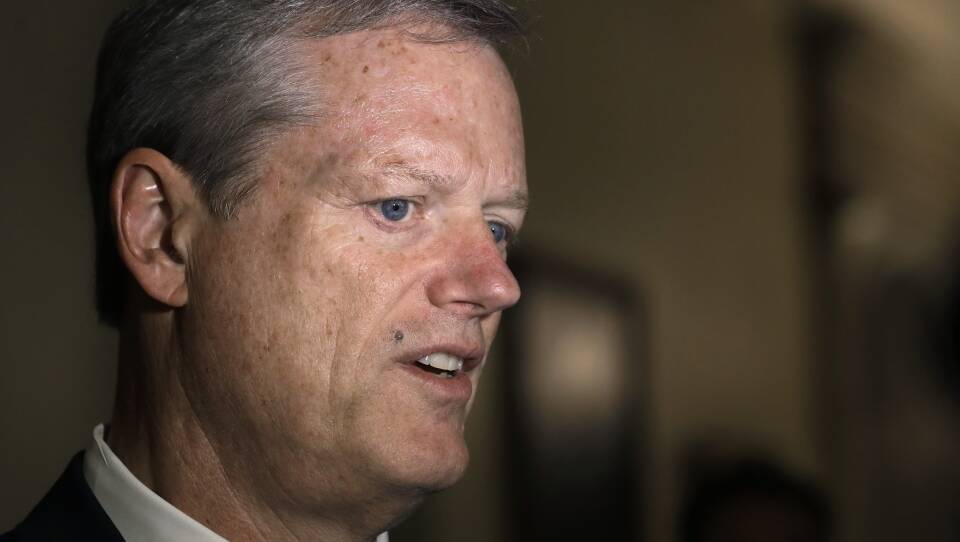Gov. Charlie Baker told Boston Public Radio on Wednesday that he believes the state is performing well in its pledge to ensure COVID-19 vaccines are rolling out equitably across the state.
"I think we're meeting our target on this one," he said.
Baker did not offer specifics on the state's plan plan to set aside 20% of vaccine supply for hard-hit communities beginning in Phase II. Instead, he pointed to efforts to prioritize congregate care sites, homeless shelters, correctional facilities and other segments of the population the state has prioritized.
He pointed to metrics that show Massachusetts as a leader for vaccine distribution.
"We're almost double the national average on our Latino population, but there we have work to do," he said. "We're at about 18 or 19% on Black residents, which is second best in the country. One of the things we are doing is putting resources into those communities and into the community health center system along with vaccines to help them help people get over the hump on this."
Baker faced sharp criticism during a legislative oversight hearing this week, as lawmakers accused him of privatizing the state's vaccine rollout rather than relying on existing public health infrastructure.
As GBH Newsreported Tuesday, Massachusetts is currently the 13th most vaccinated state, according to the Centers for Disease Control and Prevention, with 15.5% of the state's nearly 7 million residents fully inoculated. Just over 29% of the state has received at least one dose of the two-dose vaccines.
The commonwealth also ranks first in both total doses administered per capita and in first doses delivered per capita in states with more than four million residents.
Massachusetts is now a leader in several metrics for vaccine distribution, but critics continue to push Baker on his administration's emphasis on mass vaccinations over pre-existing pandemic vaccination plans that utilize the state's network of local boards of health — organizations that could target the neediest recipients — according to a GBH News report.
On Wednesday, Baker defended the rollout on Boston Public Radio, saying the state has put "north of $30 million" in funding to community health center systems, which are seen as a critical tool to reach populations who may be hesitant to take the vaccine.
He noted that state officials are eager to receive additional doses of the single-dose Johnson & Johnson vaccine, which would help the state reach populations being missed through mass vaccination sites.
"We can do a lot more things with it, especially around mobility," Baker said.
As the state plans to open eligibility to all adults in April, lingering hesitancy will be a factor in achieving broad immunization.
Earlier this week Attorney General Maura Healey, concerned with the level of vaccine resistance among state police and corrections officers, told Boston Public Radio that she felt vaccines should be mandated for those state workers. She stopped short of offering a legal position but instead said they should be mandated “as a matter of what’s right, practical and common sense.”
Medical ethicist Arthur Caplan told Boston Public Radio Wednesday that the attorney general should in fact issue a legal opinion or waiver providing "legal immunity" for the Baker administration to mandate vaccines for state employees, even while the vaccines are under emergency use authorization.
Baker said he would not support a mandate at this point in the process, instead favoring giving people "a little bit of rope on this whole question associated with hesitancy and concerna about vaccines generally, and then see where we are."
"I don't think we should head down that road until we've actually had a process and a time here where there's far more normalization to the whole idea of getting vaccinated," he said. "Which we'll be at in a couple of months."
Baker also discussed school reopenings as the state pushes to bring elementary students back to the classroom fulltime by the end of April. Citing learning loss, he said the state will put a "tremendous amount of effort" to have summer school programming.
While Education Commissioner Jeff Riley has been given authority to compel school districts to bring students back to the classroom, Baker said he did not believe the same kind of "statutory framework" existed for summer school.





